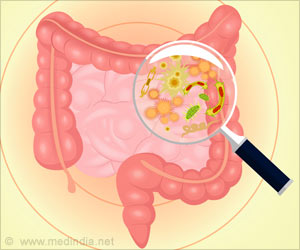Stay informed about the latest guidelines for using low-dose aspirin in preventing heart disease and its complications. Read more to find out.
- The U.S. Preventive Services Task Force (USPSTF) has released updated recommendations regarding the use of low-dose aspirin for preventing heart disease
- Initiation of daily aspirin is advised in adults aged 60 or older
- While low-dose aspirin can mitigate heart attack risks by preventing plaque rupture, a thorough evaluation of its benefits and risks is crucial
Aspirin Use to Prevent Cardiovascular Disease: US Preventive Services Task Force Recommendation Statement
Go to source).
TOP INSIGHT
Low-dose aspirin must be used precisely; it's not recommended for people who have established heart conditions or who are between the ages of 40 and 59
Dr. Septimus explains that the practice of prescribing low-dose aspirin to prevent heart attacks and strokes in individuals without significant heart or vascular disease ceased years ago.
The updated guidelines merely formalize the approach that has already been implemented in clinics for a considerable period. Nevertheless, it should be noted that while aspirin can contribute to reducing the risk of cardiovascular events, it is not universally required, especially for those at lower risk.
Role of Low-Dose Aspirin in Prevention of Heart Diseases
Dr. Septimus goes on to clarify the role of low-dose aspirin in heart disease prevention. In individuals with narrowed blood vessels due to plaque buildup, referred to as atherosclerosis, the likelihood of plaque rupture increases.Such ruptures trigger clotting and inflammation that can lead to heart attacks and strokes. As a blood thinner, aspirin can mitigate the risk of plaque rupture and subsequent clotting, thereby diminishing the chances of heart attacks and strokes in those with substantial plaque buildup. The required dosage for this purpose is lower than the dosage typically used for pain relief, which is why doctors prescribe low-dose aspirin, also known as baby aspirin.
Dr. Septimus emphasizes that even at these low doses, aspirin can cause adverse effects such as gastrointestinal bleeding, ulcers, and, in severe instances, hemorrhagic strokes. Consequently, the decision to take aspirin daily must carefully consider the benefits against the potential risks. Therefore, it is primarily prescribed to individuals with atherosclerosis.
Shift in Guideline for Low-Dose Aspirin
The shift in the guidelines for low-dose aspirin arises from the recent efforts of the USPSTF. After convening in 2016 to discuss the role of low-dose aspirin in preventing heart disease and complications, the task force reconvened to address the topic again.Dr. Septimus defines primary prevention as measures taken to reduce the risk of heart disease in individuals at risk but without evidence of arterial disease or prior heart attacks or strokes. These individuals are advised to focus on lifestyle changes such as adopting a heart-healthy diet, engaging in regular exercise, managing cholesterol and blood pressure levels, addressing diabetes, and quitting smoking.
As for who should take low-dose aspirin and who should not, individuals who have experienced heart attacks or have known heart disease are candidates for aspirin therapy for secondary prevention. Additionally, according to the USPSTF, adults aged 40-59 with a 10% or higher risk of heart attack based on risk assessment tools may consider low-dose aspirin.
However, Dr. Septimus cautions that risk assessment models cannot definitively confirm the presence of arterial plaque, which is when the benefits of aspirin outweigh the risks. A more accurate assessment can be obtained through tests like the coronary artery calcium (CAC) score, which measures plaque buildup. Furthermore, even those at high risk should be assessed for bleeding risks before starting aspirin therapy.
In conclusion, Dr. Septimus stresses that low-dose aspirin should never be taken daily without a doctor's recommendation, even though it's available over the counter. Individuals currently taking aspirin and concerned about the new guidelines should consult their doctors before making any changes.
These updated guidelines align with the practices that medical professionals have already been following for years. Therefore, anyone prescribed low-dose aspirin should not discontinue usage without consulting their healthcare provider.
Reference:
- Aspirin Use to Prevent Cardiovascular Disease: US Preventive Services Task Force Recommendation Statement - (https://pubmed.ncbi.nlm.nih.gov/35471505/)
Source-Medindia
 MEDINDIA
MEDINDIA




 Email
Email










